AI is transforming the Quality assurance (QA) field by
- Freeing from repetitive testing with ArtificiaI-powered tools that do it faster.
- AI’s eagle-eye vision uncovers even the sneakiest bugs, ensuring your software shines.
- Expanding the test coverage with AI-generated test cases.
- Tailor testing to specific user journeys, ensuring a smooth experience.
There are indeed many tools out there that use AI. Since it’s impossible to showcase them all, here are 10 innovative tools that we think will change the game.
#1) Keploy
Keploy is an innovative open-source tool that transforms user traffic into actionable test cases and data stubs, significantly enhancing software testing and development efficiency. Here’s a concise overview:
- Converts real user traffic into comprehensive test cases and data stubs.
- Promotes 90% test coverage in just 2 minutes, streamlining the development process.
- Features AI-generated tests that are efficient and effective.
- Supports open source community engagement, allowing users to try locally or join a waitlist for advanced features.
- Demonstrated reliability with testimonials from prominent companies like Amazon, Reliance, and Nutanix.
- Simplifies testing by capturing network interactions, automating test and stub generation.
- Includes features for test deduplication and native integration with popular testing libraries (JUnit, go-test, py-test, jest).
- Facilitates easier unit testing of complex systems with realistic data.
- Encourages community involvement through social media platforms and offers extensive support documentation.
- Challenges developers with a unique test coverage challenge, promising rewards for participation and engagement.
#2) Refraction
Refraction.dev offers features that help software developers automate and helps them in improving their coding process
Features
- Scanning your code for errors and suggesting corrections.
- Seamlessly translate your code from one programming language to another.
- Provide a functionality description, and Refraction crafts the necessary code.
- Define your CSP needs, and Refraction handles the configuration.
- Convert your CSS to work with different styling frameworks.
- Improve code readability by automatically inserting debug statements.
- Visual diagram creation: Easily generate diagrams to visualize data flows or processes.
- Refraction auto-generates documentation to enhance code understandability.
- Receive straightforward explanations of your code’s functionality.
- Describe desired improvements, and Refraction will refine your code.
- Ask about programming concepts for detailed explanations from Refraction.
- Refractor your code by moving hardcoded values to variables.
- Design CI/CD pipelines and have Refraction automate the scripting process.
- Explain your database requirements and get the appropriate SQL queries from Refraction.
- Update your code with the latest best practices for optimization.
- Specify a pattern and get a tailor-made regex.
- Check your code against style guidelines and receive improvement suggestions.
- Integrate types into your code for improved clarity and safety.
- Automatically generate unit tests for your code in your preferred testing framework.
#3) Synthetic Users
Synthetic Users offers a groundbreaking platform that revolutionizes how businesses conduct research for users. By leveraging AI-generated participants, this service enables companies to test ideas and products efficiently without real users. This approach significantly reduces the time and cost associated with traditional user testing methods
Features
User Research without Real Users:
- Test ideas and products with AI participants.
- Gain organic insights from synthetic users.
- Users become increasingly insightful over time.
- Target specific audiences for tailored feedback.
Mitigating Product Risk:
- Address time and budget limitations in user testing.
- Overcome recruiting respondent limitations.
- Uncover potential product risks and blockers.
Testing & Optimization:
- Validate market fit and identify winning concepts.
- Learn about customer preferences and habits.
- Gain unique product overviews to optimize features.
- Fine-tune and segment participants for targeted feedback.
Cost-Effective & Efficient:
- Set up in seconds and start testing immediately.
- Synthesize results in seconds compared to days for real users.
- Significantly lower participant fees compared to real user testing.
- Annual cost for 100 interviews is 25 times lower than real user testing.
Actionable & Reliable Results:
- Results compared periodically with live user testing sessions.
- Becoming the industry standard for user research.
- Supported by research studies and expert opinions.
Additional Features:
- Proprietary synthetic personas engine.
- Enrichment layer for enhanced realism.
- Large language model for natural language interactions.
#4) UFT One
- UFT One is a functional testing tool with AI technology that Micro Focus created to accelerate test automation across a variety of applications, which includes desktop, web, mobile, mainframe, composite, and packaged enterprise-grade apps.
- Features omnichannel testing, centralizing functional testing efforts and streamlining manual and automated testing processes.
- Utilizes AI-based machine learning and advanced OCR for superior object recognition, reducing test creation time and maintenance while boosting test coverage and the resiliency of testing assets.
- Supports both front-end functionality and back-end service testing, simplifying multilayer testing with a visual test-driven design and managing API testing without extensive coding.
- Promotes collaboration and integrates with DevOps toolchains to eliminate bottlenecks and enhance efficiencies.
- Has been proven to improve regression testing times by 90% and enhance test coverage, as demonstrated by a case study with Roche Diagnostics.
#5) aqua ALM
- aqua AI assistant offers AI-enhanced test management, promising to unlock 34% more efficiency by providing a comprehensive platform for managing test cases, defects, requirements, and test automation.
- It features an AI capable of understanding context and semantics to convert speech into requirements, generate test cases, and identify patterns, thereby saving time across the test lifecycle.
- aqua encourages structured work by consolidating testing data and implementing seamless workflows, enabling the reuse of test cases in both automated and manual testing.
- The platform provides full visibility into the QA process, allowing users to track changes, access detailed reports, and ensure transparency across all testing items.
- It enhances the user experience with an intuitive interface, promotes collaboration through pre-configured views and rule-based workflows, and supports automated and manual testing from a unified QA management tool.
- aqua is utilized by over 200 companies and 4,500 users across 22 European countries, demonstrating its effectiveness in improving testing efficiency and project cooperation.
- It integrates with Jira for two-way real-time syncing, offers customization for various user groups, and supports heavily regulated industries, making it a versatile tool for improving QA management and saving time.
#6) Eggplant Test Automation Tool
- Unique, image automation approach, allowing interaction with applications through visual elements.
- Capable of simulating user interactions and validating application behavior across various platforms and devices.
- Offers versatile testing solutions for GUI, mobile apps, and IoT devices with powerful image recognition capabilities.
- Supports both mobile and desktop testing, applicable to iOS, Android, Windows, macOS, and Linux systems.
- Facilitates a wide range of testing types, including functional, regression, cross-browser, UI, mobile app, performance, integration, data-driven, accessibility, and localization testing.
- Integrates with cloud-based and on-premises environments, offering flexibility for deployment.
- Provides integration capabilities with popular tools and technologies for enhanced testing processes.
#7) Katalon
- All-in-one platform for testing any app type.
- AI-enhanced to streamline test creation and execution.
- Suitable for all tester levels, with no-code, low-code, and full-code options.
- Integrates natively with CI/CD pipelines for efficient DevOps practices.
- Provides instant multi-browser test environments via TestCloud.
- Features TrueTestTM for AI-powered regression testing, generating essential tests for coverage.
- Offers AI tools like StudioAssist for automatic Groovy code writing and a Virtual Data Analyst for test data and stability insights.
#9) ACCELQ
- ACCELQ offers a powerful AI-driven test automation platform designed for simplicity and efficiency in software testing across web, mobile, API, and desktop applications.
- Zero coding is required for test automation, making it accessible for testers of all skill levels.
- Business process-focused automation is integrated across technology stacks for end-to-end business assurance.
- Specialized cloud and packaged app testing solutions with ACCELQ Live, enhancing automation for Salesforce, nCino, Oracle, and more.
- Unified Quality Lifecycle Management from test design through change management.
- Multi-channel support, providing a single platform for web, mobile, API, desktop, and backend testing.
#10) Perfecto Scriptless
- Simple, fast test creation with intuitive drag-and-drop interface.
- Automation for complex use cases like biometric authentication and network virtualization.
- Scalability for expanding testing teams without requiring technical scripting skills.
- Enables shift-left testing to identify and fix bugs early in the SDLC.
- Supports a wide range of devices and provides extensive testing functionality.
- Offers expansive reporting for thorough test analysis.
- Perfecto Scriptless enhances Selenium for no-code automation, speeding up onboarding.
- It supports integration, usability, and performance testing.
- Compatible with Jenkins, TeamCity, Jira, and GitLab.
- Offers a low-entry barrier with a no-code approach, simplifying AI automation testing.
- Designed for ease of use, it aims to be simpler than Selenium-based automation.
- Addresses common issues in test automation, offering functionality, and a user-friendly experience.
- Some testers may face a learning curve, while others will find it beneficial for its ease of use and functionality.




